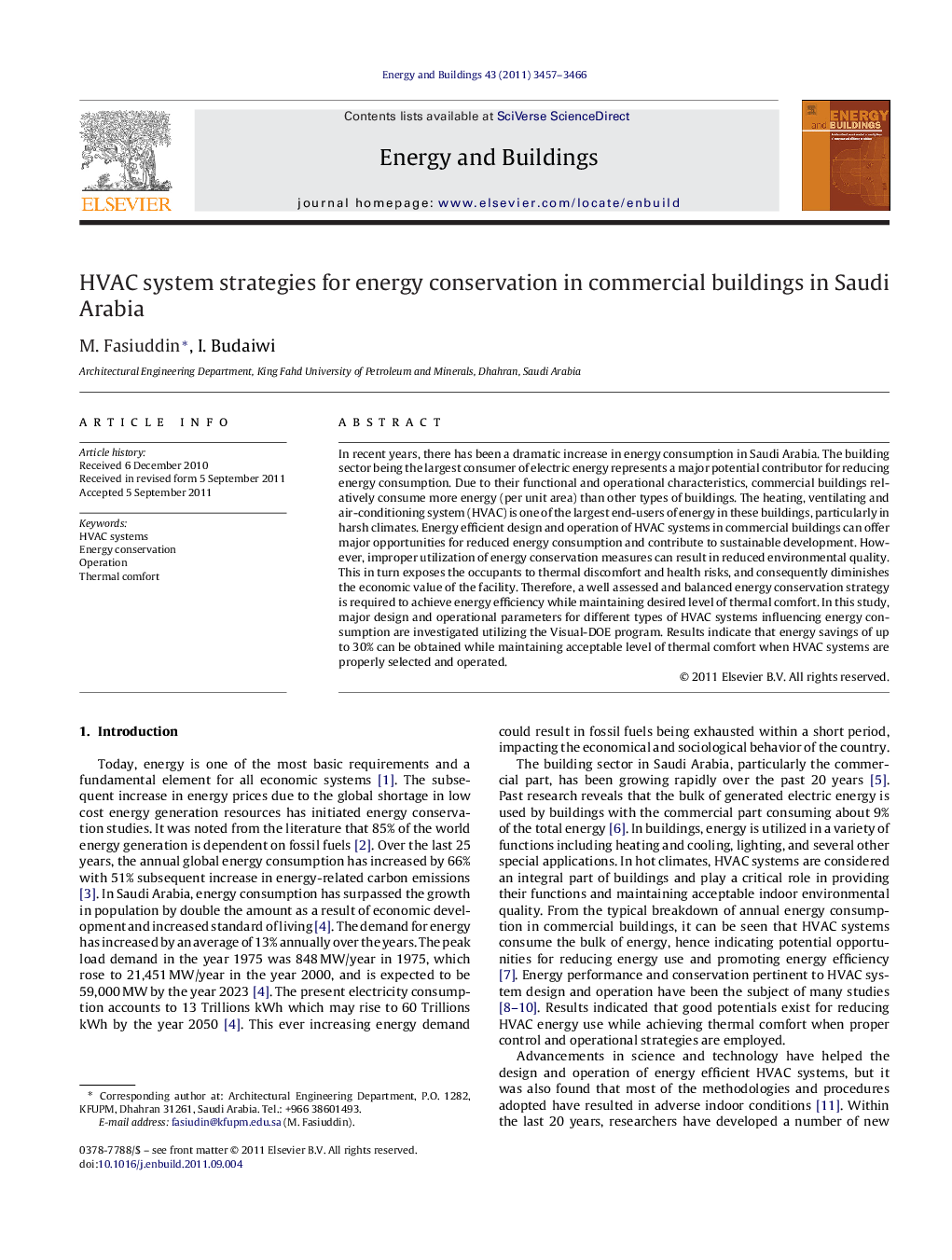| Article ID | Journal | Published Year | Pages | File Type |
|---|---|---|---|---|
| 264210 | Energy and Buildings | 2011 | 10 Pages |
In recent years, there has been a dramatic increase in energy consumption in Saudi Arabia. The building sector being the largest consumer of electric energy represents a major potential contributor for reducing energy consumption. Due to their functional and operational characteristics, commercial buildings relatively consume more energy (per unit area) than other types of buildings. The heating, ventilating and air-conditioning system (HVAC) is one of the largest end-users of energy in these buildings, particularly in harsh climates. Energy efficient design and operation of HVAC systems in commercial buildings can offer major opportunities for reduced energy consumption and contribute to sustainable development. However, improper utilization of energy conservation measures can result in reduced environmental quality. This in turn exposes the occupants to thermal discomfort and health risks, and consequently diminishes the economic value of the facility. Therefore, a well assessed and balanced energy conservation strategy is required to achieve energy efficiency while maintaining desired level of thermal comfort. In this study, major design and operational parameters for different types of HVAC systems influencing energy consumption are investigated utilizing the Visual-DOE program. Results indicate that energy savings of up to 30% can be obtained while maintaining acceptable level of thermal comfort when HVAC systems are properly selected and operated.
► We examined design and operational parameters of HVAC systems affecting energy. ► A representative commercial building was modeled for Dhahran (KSA) weather. ► Use of enthalpy economizer with VAV system produced greatest energy saving (∼25%). ► Intermittent operations of systems can generate savings up to 21.4%. ► Higher setpoints within limits for occupied and unoccupied periods are advantageous.
